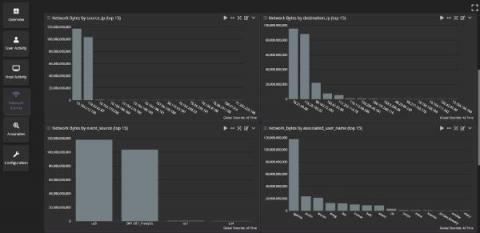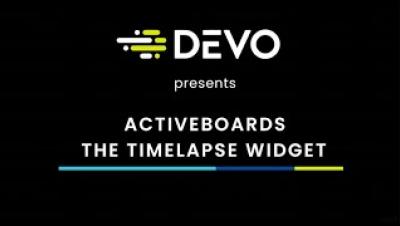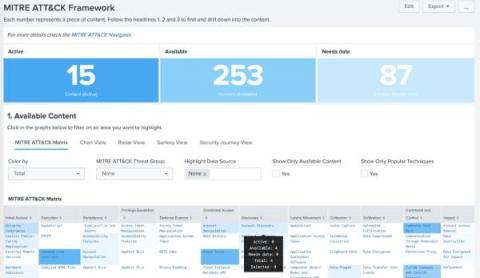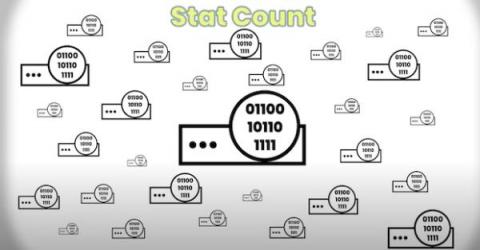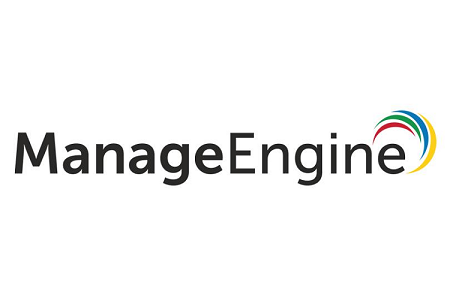Security | Threat Detection | Cyberattacks | DevSecOps | Compliance
Logging
The Convergence of Security and Observability: Top 5 Platform Principles
With the advances in technology and an unpredictable macro environment, IT professionals have to deal with a deluge of data, increasing cyberthreats, distributed infrastructure and workforce, a mix of modern and monolithic apps and hybrid environments. Although there is significant momentum towards the Cloud, many organizations cannot move all of their data to the public cloud due to security, compliance or technical constraints.
AWS-ome News for Devo and Our Customers
I am very pleased and proud to share the big news that Devo is now an AWS Security Competency Partner. This is a significant milestone for Devo and it’s important for our current and future customers and partners. This designation validates that Devo has successfully met AWS’s technical and quality requirements for providing customers with a deep level of expertise in threat detection and response.
ML Detection of Risky Command Exploit
As described in Splunk Vulnerability Disclosure SVD-2022-0624, there is a list of SPL (Search Processing Language) commands that are classified as risky. This is because incorrect use of these risky commands may lead to a security breach or data loss. As a precautionary measure, the Splunk Search app pops up a dialog, alerting users before executing these commands whenever these commands are called.
Activeboards - The Time Lapse widget
Splunk Security Essentials 3.6.0: A Holistic View of Your Security
We hope that you had a blast at.conf22 whether you attended in-person or virtually! To keep the good vibes of.conf rolling, we are releasing Splunk Security Essentials 3.6.0. For those new here, Splunk Security Essentials (SSE) is a fully supported app that is available to install from Splunkbase. There is so much to be excited about in this update and we can’t wait for you to make the most of all the new benefits.
Enhance Your Devo Data Search Capabilities with Stat Counts
With today’s expanding attack surfaces and the growing sophistication of adversaries, exploding volumes of data are negatively affecting SOC teams’ success. According to the 2021 Devo SOC Performance Report, 67% of respondents said their lack of visibility into the attack surface makes working in the SOC painful.
We did it again! ManageEngine AD360 and Log360 are among the 100 named in the 2022 Fortress Cyber Security Awards
We are excited to announce that ManageEngine has been recognized in three different categories by the Business Intelligence Group in its 2022 Fortress Cyber Security Awards. It is a moment of pride for us to see two of our solutions, AD360 and Log360, win more awards. AD360 was declared a winner in the Authentication and Identity category, and Log360 won awards in both the Threat Detection and the Incident Response categories.
CVE Severity: Approaches for When & How To Manage Builds
In a-near perfect world, you would instantly fix your application every time a relevant CVE was issued. (In a truly perfect world, of course, there would be no security incidents, and hence no CVEs in the first place.) But in the real world, reacting to CVEs requires a careful calculation. You need to assess whether each CVE is serious enough to warrant the rejection of a build and a delay of a release.
3 Important German BSI Documents Every SIEM & SOC Manager Needs To Know About
The German IT Security Act 2.0 (IT-SiG 2.0) has been in force since May 2021. Due to this new law, significantly more German companies have been classified as operators of critical infrastructures (KRITIS) than ever. This is a major cause of headaches for many managers. In addition, IT departments are starting to ask themselves: "Are we now regarded as KRITIS"? And if so, "What do we have to take into consideration?"


